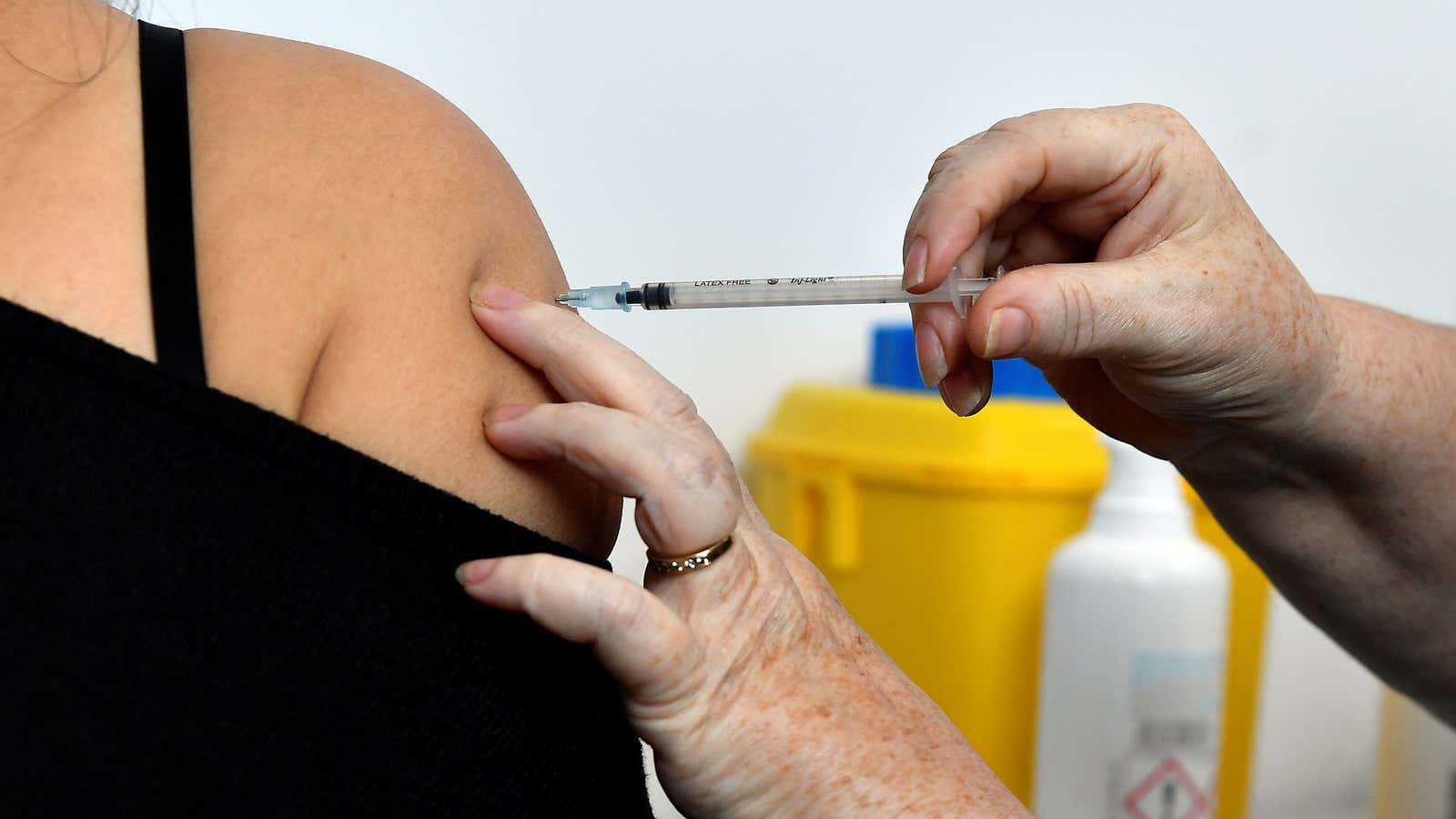Travel bans and other restrictions are already in place globally after the World Health Organization designated a strain of covid-19 first detected in Botswana a variant of concern on Friday (Nov. 26).
Named omicron from the Greek alphabet, the variant contains over 30 mutations to its spike protein, which allows it to invade host cells and invite a response from the body’s immune system. At this stage little is known about whether it’s more contagious or dangerous than other strains, or the effectiveness of current covid-19 vaccines against it. But it may not be long before we do.
Vaccine efficacy for omicron
There are two key ways of looking at vaccine efficacy. One involves the extent to which the vaccine can reduce the number of cases that might otherwise have resulted—that’s the vaccine’s impact on transmission. The other more pressing question is the extent to which vaccines can reduce severe disease and hospitalization from this strain. It’s possible to contract covid despite being vaccinated—what’s known as a “breakthrough” infection—but with existing variants, vaccines mostly protect against serious illness.
Penny Moore, research chair of virus-host dynamics at South Africa’s University of the Witwatersrand, is leading a team that is already studying how this variant contends with antibodies. Moore told the journal Nature that they’re working at “warp speed” and hope to have some answers in as little as two weeks.
Scientists at Pfizer and BioNTech also say they are likely to know significantly more about how well their vaccine should be expected to work in about two weeks.
The comparison with delta
For comparison, the first known samples of delta, first detected in India, date from October 2020. It was labeled a variant of interest on April 4, 2021, and then became “of concern” on May 11. On May 22, Public Health England shared preliminary data about delta and vaccines. A subsequent study published in June, which used blood samples from vaccinated people to gauge the level of antibodies produced toward the original strain or to delta, found delta was far more likely to cause a breakthrough infection, but that the vaccines were still effective at preventing severe disease.
More answers about omicron will come from seeing how it spreads (or doesn’t) in countries where delta is highly prevalent, given delta’s ability to crowd out other strains of the virus and become dominant.
A South African doctor who helped discover omicron said that she has seen relatively mild symptoms so far, though it’s unclear if these were in vaccinated or unvaccinated patients. If data suggest that vaccines don’t work as well with omicron, Pfizer and BioNTech say it would be possible to tweak their vaccine in a little over three months.
